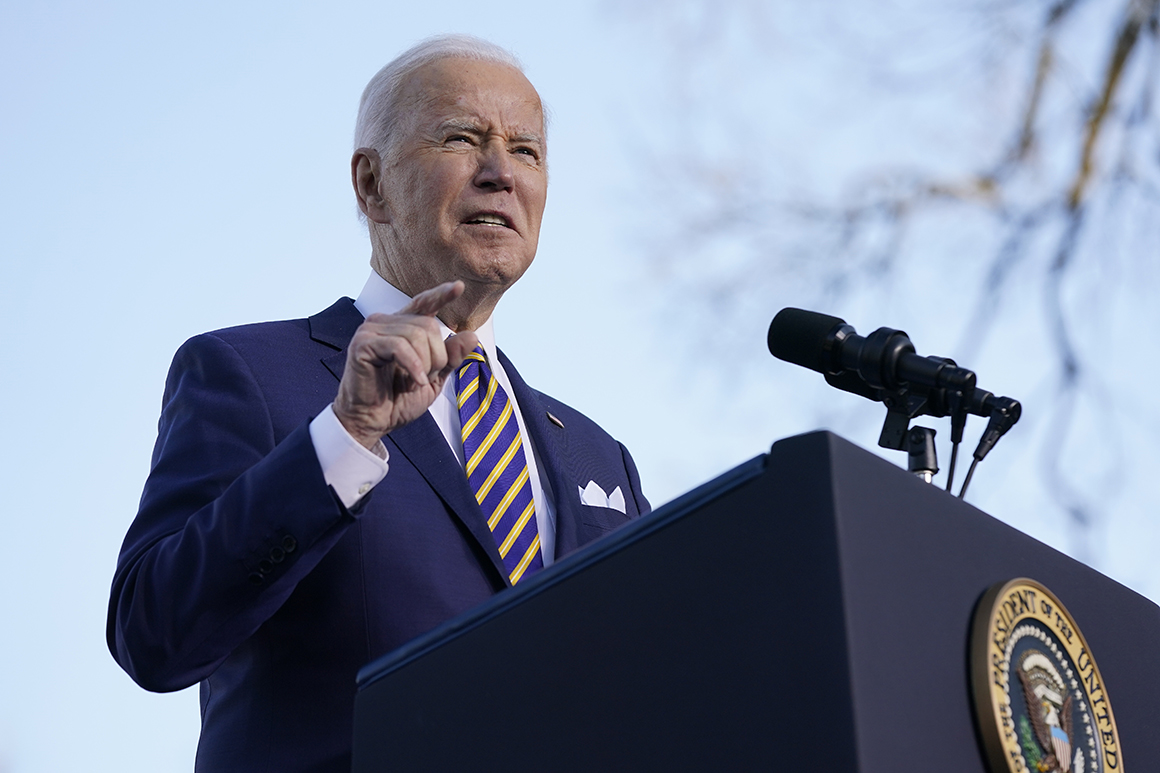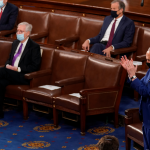President Joe Biden will attend a special caucus meeting with Senate Democrats Thursday as the party struggles over how and whether to weaken the filibuster to pass elections reform.
Even as Senate Majority Leader Chuck Schumer vows to hold a vote on potential rules changes by Monday, Martin Luther King Jr. Day, he has yet to indicate what his final proposal to the caucus will be.
“I really don’t know what the leader is thinking at this stage,” said Sen. Ben Cardin (D-Md.). “He has not shared that with us. A lot of us have had input. I’ve certainly let him know my views.”
Asked when Democrats need to come to a consensus, Sen. Jon Tester (D-Mont) said: “As I told you for the last two months, yesterday would be great.”
"The truth is, at some point in time [Schumer’s] got to bring this to a head. And I think that’s why he’s having the vote," he added.
Senate Democrats are weighing several potential changes, including reinstating a talking filibuster, creating a “carveout” that would allow the elections and voting legislation to pass on a simple majority and allowing the Senate to begin debate on a bill by a simple majority vote.
But no final decisions have been made, days before Democrats are slated to vote on the proposal. And it’s clear Democrats don’t have the numbers to make rules changes along party lines, at least not now.
Democrats are oscillating between voting on a talking filibuster or a carveout for elections reform, according to a senator familiar with the discussions. They may end up voting on both.
Some Democrats want to preserve significant sway for the minority and prefer a talking filibuster. That would still allow the minority to gum up the Senate for weeks, but senators would have to hold the floor to do so to stop a vote at a majority threshold. Others prefer the carveout, which would allow a quicker majority vote but pare back minority rights too much for some.
“Every 24 hours it feels like the conversation has shifted as we wrestle,” the senator said.
Schumer has warned senators they may have to stay in D.C. for the weekend, and some are expecting the vote to take place on Monday, despite a previously scheduled recess.
Sen. Martin Heinrich (D-N.M.) said Wednesday that the current negotiations “are in flux” but that he supports a talking filibuster.
“If you look at every other democracy in the world there are measures for the minority party to be able to slow things, but they don’t get a veto. So eventually they get a vote,” he said. “I think that’s key: that you have a path for a majority to enact policies to get to a majority vote.”
Senate Democrats are seeking to pass two elections and voting reform bills. The first would establish federally mandated voting rules, such as requiring early voting options, expanding access to mail ballots and banning partisan gerrymandering. The second, named after the late Rep. John Lewis (D-Ga.), would restore a requirement that certain jurisdictions receive approval from the Justice Department or D.C. District Court before making changes to voting laws.
While they both support the elections reform bills, Sens. Joe Manchin (D-W.Va.) and Kyrsten Sinema (D-Ariz.) have insisted for more than a year that they will not toss the Senate’s current 60-vote threshold. And Manchin has historically opposed changing Senate rules along party lines, an option known as going “nuclear.” And they’re not alone — other Senate Democrats also aren’t committing to changing the rules.
“I’ve got no new answers at all,” Manchin reiterated Wednesday morning. "Good meetings, good discussions.” He added that Biden gave a “good speech” in Georgia Tuesday, when the president made the case for changing Senate rules to pass voting reform.
A small group of Democratic caucus members — Sens. Jon Tester of Montana, Tim Kaine of Virginia and Angus King of Maine — have been meeting with Manchin to discuss rules change options. And Sinema met with a small group of Democratic senators Tuesday evening.
“In a world when you’re trying to secure the support of a small handful of members, you’ve got to be flexible,” said Sen. Chris Murphy (D-Conn.).




















